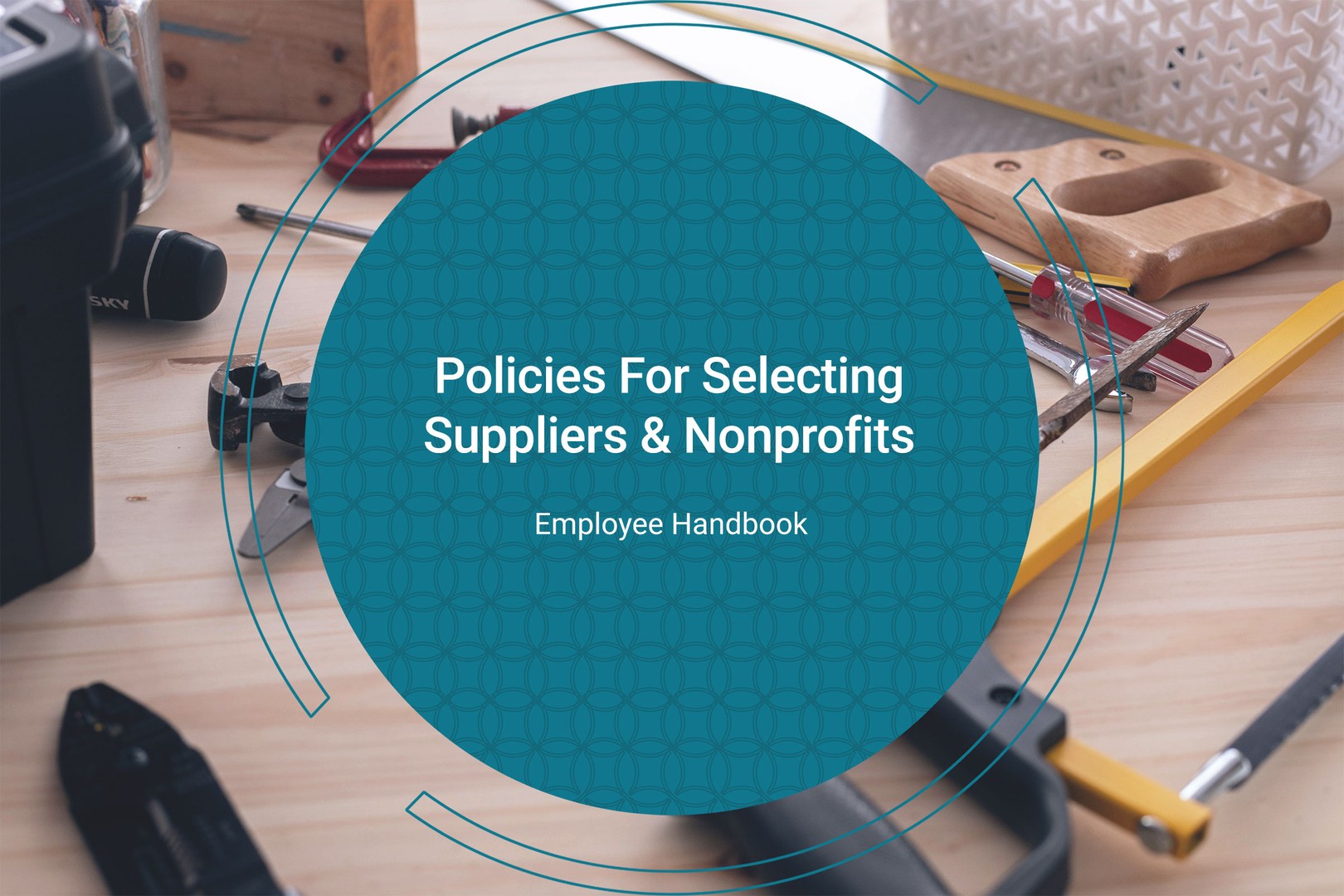Overview | Code of Ethics + Whistleblowers Policy | Education & Development Benefit Program | Policies For Selecting Suppliers & Nonprofits | Health & Wellness + Menopause Benefit Programs | Climate Action Policy
While completing our B Impact Assessment and preparing for our verification process, we spent a lot of time thinking through how to create policies and benefit programs that promote inclusion, equity, and justice. We designed our employee handbook to be a tool for our company to nurture healthier workplace cultures and exemplify how to use business as a force for good. Our aim for this series is to be open and transparent with our greater community about how we enact our values. In this post, we share how we select our suppliers and nonprofit partners.
First, let’s take a look at our supplier selection policy...
Selecting Suppliers Policy
We Prioritize Diverse & Local
Smith Assembly’s goals for 2024 are to incrementally increase the percentage of our supply chain that is majority-owned by women and/or individuals from underrepresented populations to at least 40%, and to maintain the percentage of our suppliers local to our headquarters or key facilities above 40%.
We believe that one of the most impactful ways businesses can drive justice is by actively supporting representation, diversity, and equity in their supply chains. Smith Assembly is committed to investing extra time and effort when researching options to find suppliers that align with our mission and values, and are also open to switching providers whenever a viable alternative becomes available.
We’ll be honest. Even though from day one we tried to make intentional choices towards equity, finding suppliers with diverse ownership and leadership has been challenging for us. In 2020, two-thirds of the money we spent in our supply chain went to companies majority-owned by white men. This year, now that we’ve already made our initial investments and are operating at a consistent burn rate, that amount might be higher since payments to suppliers like Google, Zoom, Microsoft, Adobe, and Apple will become a larger percentage of our expenses.
The fact that we so often come across suppliers owned and led by dominant groups is a reminder that our society’s unjust systems promote an uneven distribution of wealth and leadership to the benefit of already privileged individuals and communities. For that reason, we made a commitment to increase the diversity of our suppliers above 40% before 2024. Moreover, we’ll look for ways to further increase that percentage in the future.
Let’s now look at our policy for selecting nonprofits...
Selecting Nonprofits Policy
We Prioritize Community-Led & Values-Aligned
Smith Assembly screens the nonprofits proposed by our Global Innovators and chooses one that is community-led and values-aligned. Specifically, we select organizations which:
- have significant percentages of their leadership and day-to-day participants from their beneficiary communities;
- demonstrate a commitment to diversity, inclusion, equity, and justice and treat their team and communities with dignity, respect, and compassion; and
- face systemic barriers when trying to access other forms of funding.
As an impact-first company, we donate 5% of our revenue every year to nonprofit organizations recommended by our Global Innovators. This is the cornerstone of our impact model since we not only support the Global Innovators as individual leaders, we also meaningfully support the work they do in their communities.
We deliberately created our policy to select only nonprofits led by people who belong to the communities they serve, and whose work is informed by inclusive, participatory, anti-racist, and anti-colonial practices that center local and indigenous knowledge. By doing so, we aim to support organizations leading the way towards more just and sustainable practices and hopefully raise awareness that the nonprofit sector needs urgent change.
The organizations we donate to often face systemic barriers to other forms of funding due to their early stage or lack of formal credentials, certification, or tax-exempt status. Our policy acknowledges that there are thousands of activists and innovators around the world who frequently don’t have access to resources, tools, and infrastructure yet are still leading change in their communities.
If you have any questions, or would like to learn more about our nonprofit partnerships and suppliers, please send us an email to team@smithassembly.com.
